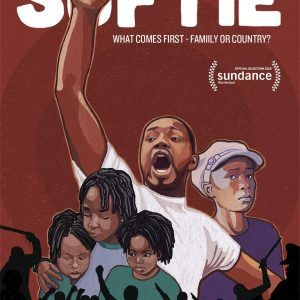I knew we had a few things that needed fixing in our country, Kenya. Maybe cut on the number of delinquent individuals we elected to represent us, but nothing felt like an emergency, yet. Nothing felt like it couldn’t wait. I was like a caterpillar that didn’t need to worry about moth problems, because we’ll get there, eventually. We always do.
Until I pressed play and watched Boniface Mwangi’s film ‘Softie’. First of all, this film should be watched by anyone that calls Kenya home. Maybe you’ll understand better why things are as they are. We can’t live in a house whose dark corners we fear to confront, or we’ll pay the price willful ignorance comes with.
Softie shows a country hidden behind the veil of hypocrisy and abuse. It speaks to everyone differently, but some sores are too big not to be seen by all. It thrills, it captures, it reveals to you what you’ve always known but ignored. Below are some lessons this timeless film laid bare;
Standing up is not the norm, it’s the exception
What comes first, family or country? This is a question that probably disturbs Boniface Mwangi to this day. His convictions stood trial in the face of uncertainty, and for once, he had more than his country to fight for. He had his own family to protect from the dangers he was trying to save his country from. You’d think him settling down would bring an end to his unabated cries for justice. But Boni believed a better Kenya awaited his family and everyone else only if his endeavours for justice were successful.
Therefore, in 2013, his grand protest hatched. He was sick of all the people we called leaders that occupied our parliament. All they did was wine and dine at the expense of those that elected them. So he sought out other individuals that were as headstrong as he was, and they ferried bloody pigs to parliament grounds. I honestly don’t know what it would take for any other person to pull off such a stunt. Maybe I’d do it with a gun to my head. But for Boni, this was just another day at work. It was one of the many protests that ended with him battered, arrested, or both.
This was his way of taming the pirates that had held his country at a ransom. His allegiance to his country was too strong for him to turn a blind eye, so he brought a mirror to parliament in the form of blood and pigs, lest the greedy legislators had forgotten their true identity.
The herd mentality and its role in Kenyan politics
If you can’t beat them?
Vie.
Vie and beat them from the inside.
Being an activist and a protector of the weak and vulnerable wasn’t playing out as he thought it should. The scars and torment were almost overwhelming, yet he had nothing to show for them. So maybe if he was part of the system, he could bring about change that felt significant.
He wouldn’t have to confront them from the streets where tear gas and a militarized police force lay in wait. He wanted to go and shove all the ailments this country suffers from on their faces, as one of them. So he registered a political party and called it Ukweli. The Ukweli party. If only his truth could beat his opponent’s pockets. If only Starehe residents understood the future he was trying to ferry them into. If only having a manifesto and understanding what they suffered most from was all he needed to represent the people of Starehe.
But no, a manifesto has nothing on a few coins. You can sing all you want about the better Kenya that’s in your head, but if you can’t buy the vote, forget about the vote. I think the Stockholm Syndrome best explains our relationship with our government. We fell in love with the pain they inflict, and we romanticized corruption and bribes in the name of campaigns.
In this country, the individual isn’t sovereign, the herd is. We have our heads buried so deep in illusions created by those pulling the strings, we’re convinced the best way to fight for what’s ours is by begging for coins plucked from the acres of fortune they stole from us.
What’s worth giving your life for?
I’m not sure if this is a question I’ll ever answer truthfully, but watching Softie allows you to get the gist of what it would be like.
The film shows you glimpses of what it’s like to devout everything to one cause, even though it may be all in vain. That you can toil and sweat blood, but still go back home with what’s left of your broken heart. Boniface Mwangi somehow managed to convince himself that a better Kenya is worth dying for. He and a handful of other people whom we’ve given the task to keep the wolves at bay, as we stroll eating ice cream and hurling insults at each other on Twitter.
It is sad knowing the one person that was fighting for what’s ours had no one to hold his hand when he needed it the most. His family went into exile because he had rattled cages he had no business rattling. He put everything on the line for people that wouldn’t risk a toe for him or themselves. Is it that we are cowards or that we don’t have enough in us to face our reality as it is? Whatever excuses we think we have, burying our heads in the sand just leaves the best parts of us for them to devour. One man risked it all for a future that doesn’t exist yet, so how much more could we get done if only he didn’t stand alone? You don’t have to know the answer to this question now, but don’t wait around until the answer is obsolete.
A coward goes back home to their mother
Cowards watch from alleys as others bear their crosses. That’s how they get to go home to their mothers. They sit back and watch the valiant fight their battles, all this while too scared to do anything. The 2007/2008 post-election violence was a consequence of our sitting back and letting our leaders think for us. We had been reduced to mere statistics and votes, a tragic means to our politicians’ ends. We hid and let our brethren perish, because what would we have done then? But again, you don’t save a thatched hut from fire by waiting. We can’t liberate our country from those that hold it hostage, with smiles and merry-making. And yes, maybe the coward goes home to his mother after a long day of hiding and soiling his pants, but if we are not careful enough, there might be no home or mother to go back to.
So how about we protect the little that remains, and maybe, the children of our children will grow in a country whose foundation is not that of greed and malice. That they’ll learn to respect and embody the spirit under which we built a new Kenya, a Kenya that isn’t a hotbed of hate and suffering, a Kenya that is built for its people, by its people.
2022 is an election year, another opportunity to make things right. Are we up to the task?
You will also love: 10 Kenyan Activists You Should Know About





